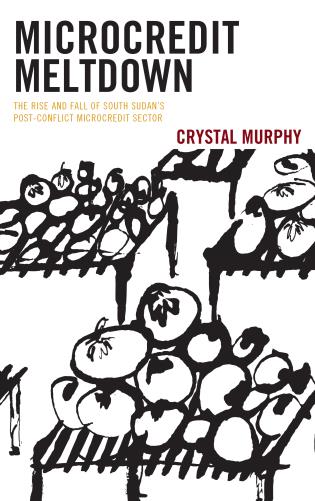 Solutions without Problem:
Solutions without Problem:
What do the 2003 American invasion of Iraq, banning gay marriage, outlawing marijuana, the Salem Witch Trials, and Voter ID laws all have in common? Each is a “solution” designed to solve a non-existent problem, with disastrous consequences. This website will examine a variety of examples from politics and social policy, religion, medicine and other aspects of social life. We will discover a major source of misery in modern life–one that is sometimes intentional but one that can be avoided. My purpose is for us to work together to bring a halt to SoluProbs™: Solutions without Problems.
Post-War Economy Project:
Professor Crystal Murphy is working on a research project that explores how microfinance, a development program targeting poor entrepreneurs, functions in an extraordinary post-war economy. The market in Juba, South Sudan is marked by hyperinflation, import-dependency, and shifting cultural values due to the repatriation of South Sudanese from all over the map. The goal of this research is to inform policymakers tailoring services in post-conflict situations. Several students are involved with supporting the project by conducting, transcribing, coding and analyzing qualitative interview recordings in light of interdisciplinary theories from behavioral economics, peace and conflict studies, and communications.
 Established to help people jumpstart their lives and economy after over a half century of conflict, the South Sudanese microcredit sector collapsed in 2012, six years after its takeoff, to the detriment of some 80,000 participants. Microcredit Meltdown is an account of the ambitious launch and premature downfall of the Southern Sudanese microcredit industry.
Established to help people jumpstart their lives and economy after over a half century of conflict, the South Sudanese microcredit sector collapsed in 2012, six years after its takeoff, to the detriment of some 80,000 participants. Microcredit Meltdown is an account of the ambitious launch and premature downfall of the Southern Sudanese microcredit industry.
Through a mixed methods ethnographic approach, the book charts the state and non-state actors that embarked upon economic development after war, the assumptions built into microlending, and the impact of ideologies and social norms on economic practice. The text compares industry theories with the experiences of borrowers and finds that microcredit failed in South Sudan due to false assumptions that were inapplicable to this post-conflict environment.
Yet the over-promising and under-delivering commercial microcredit was not isolated to South Sudan or even post-conflict settings. The Juba microcredit story is an instance of the broader global shift toward the commercial microcredit model. Initiated to get badly needed capital into the hands of poor people, instead the focus became sustaining a lending program. The text shows how the ideological and material constraints of the commercial microcredit paradigm were woefully misaligned with local socio-cultural realities, and created the collapse in South Sudan.